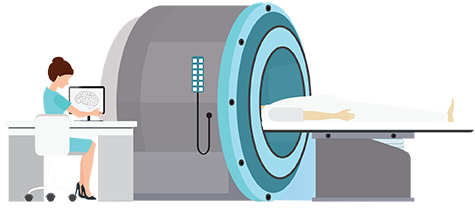

The state of Alabama needs more skilled radiology professionals to fill the jobs that are becoming available each year. If you’re interested in a specific job under the overall field of radiology find more information for each below:
Attending radiology schools in Alabama can be a great first step in your career in radiology. New students can take a look at what the different radiology jobs in Alabama are paying on average, the job outlook, and get instructions and resources for becoming licensed in the state of Alabama.
Like many health care jobs, becoming a radiologic technologist requires some postsecondary education, as well as a state license. Here are some basic steps to follow to become a radiologic technologist in Alabama:
Any individual who will be operating x-ray equipment needs to be licensed through the state of Alabama’s Radiation Control Program. The Bureau of Radiation Control issues id cards to those who have met their licensing requirements. You will first need to get formal education and training from a radiology school and be able to document practice using radiology equipment. Once you receive your id card to operate radiology equipment in the Alabama, it will be good for five years. After the five year period has elapsed, you will need to retest in order to get your license renewed. Use the links below to get more detailed information.
There is a range of salaries for jobs that fall under the radiology category. The following chart will get you acquainted with the average salaries of radiology jobs in Alabama:
| Career | Total Employment | Annual Mean Wage |
|---|---|---|
| Cardiovascular Technologists and Technicians | 600 | 51,250 |
| Diagnostic Medical Sonographers | 1,130 | 55,750 |
| Magnetic Resonance Imaging Technologists | 510 | 59,150 |
| Nuclear Medicine Technologists | 360 | 61,310 |
| Radiologic Technologists | 3,550 | 47,670 |
Keep in mind that each of these jobs may have a different type of education requirement, or may be part of a hierarchy. For example, MRI technicians typically start out as radiologic technicians, and work their way up from there.